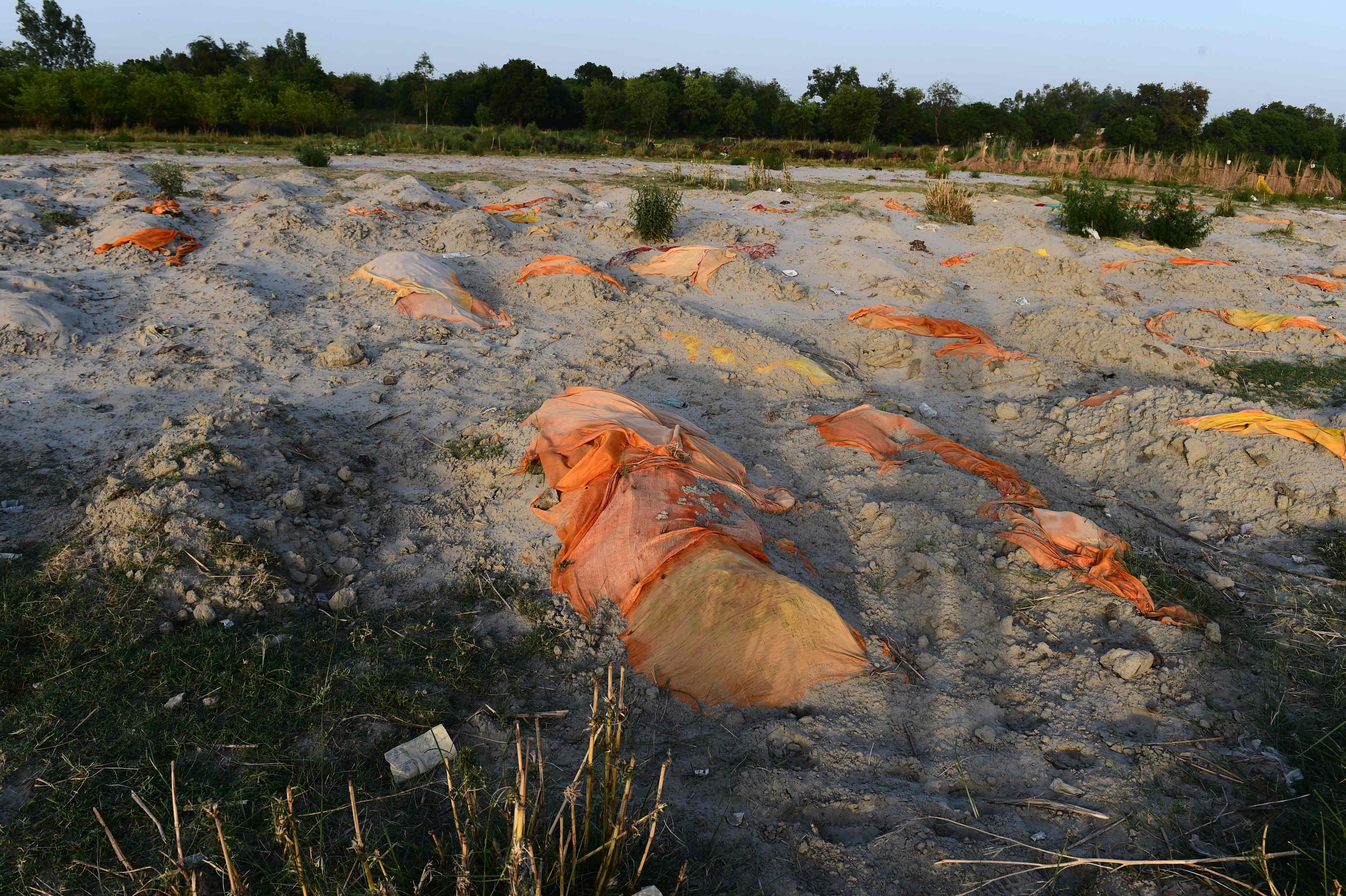Indian state orders crackdown on practice of dumping bodies in river amid Covid crisis
Warnings against dumping bodies were given through newspaper ads and announcements on loudspeaker

Your support helps us to tell the story
From reproductive rights to climate change to Big Tech, The Independent is on the ground when the story is developing. Whether it's investigating the financials of Elon Musk's pro-Trump PAC or producing our latest documentary, 'The A Word', which shines a light on the American women fighting for reproductive rights, we know how important it is to parse out the facts from the messaging.
At such a critical moment in US history, we need reporters on the ground. Your donation allows us to keep sending journalists to speak to both sides of the story.
The Independent is trusted by Americans across the entire political spectrum. And unlike many other quality news outlets, we choose not to lock Americans out of our reporting and analysis with paywalls. We believe quality journalism should be available to everyone, paid for by those who can afford it.
Your support makes all the difference.The government of Uttar Pradesh, India’s most populous state, has banned the practice of throwing dead bodies in rivers, and has promised aid to families struggling to afford cremations for Covid casualities, after hundreds of bodies were seen floating, or buried on riverbanks.
Uttar Pradesh’s chief minister, Yogi Adityanath, a firebrand figurehead for Narendra Modi’s ruling Bharatiya Janata Party, ordered district authorities to ensure that bodies which may be infected with Covid were not “floating in rivers” and polluting the holy River Ganges, which is also a key water source.
“At several places, bodies have been recovered from rivers. It must be ensured that bodies are not floating in rivers,” the state’s chief secretary, Rajendra Kumar Tiwari, said in a letter.
“It is possible that these bodies are infected with Covid. There is a possibility that these bodies will pollute the rivers and are also likely to spread the infection among people,” he added.
A large number of decomposing bodies, estimated to be in the hundreds, have been found floating in recent days in the Ganges in Uttar Pradesh and the neighbouring state of Bihar. Disturbing images and videos showed half-burnt and decomposing bodies drifting on the river last week, shocking a nation that is still reeling from a deadly second wave of Covid-19.
The issue was further exacerbated after rain and wind exposed a number of saffron-cloth-covered bodies buried in shallow sandpits on the riverbank.
It was not clear whether all the bodies were of Covid victims, but residents told reporters that families were dumping bodies in the river because they did not have the money to pay for cremation, as demand has pushed up prices for funeral services.
Messages were blared through loudspeakers in river-side villages including Gazipur, Unnao and others, for people not to throw bodies into the river.
“It is urged that incinerated bodies should not be submerged into the Ganga,” said a worker on a loudspeaker in a video shared online.
A full-page government advertisement in all Uttar Pradesh newspapers on Sunday included a similar appeal, and said that monetary aid would be given to anyone who could not afford to perform the last rites for their loved ones.
The government has asked police to patrol rivers and keep a watch on riverbanks to ensure bodies are not being dumped.
The state said it would pay a grant of 5,000 rupees (£48) to poor families to perform funeral services.
With a population of more than 240 million, more people than the whole of Brazil or Pakistan, Uttar Pradesh has been hit particularly hard by the second wave as a result of its fragile healthcare infrastructure. Experts say the situation could be far worse, as cases are going undetected in rural areas.
Denying reports that the number of bodies found in the river was as high as 2,000, Uttar Pradesh state government spokesperson Navneet Sehgal declined to give a total but said bodies were being found sporadically in groups of 10 to 20.
Senior state official Manoj Kumar Singh said traditional rituals were also a factor in the dumping of bodies, alongside fears of Covid infection from the remains, and the lack of money to pay for cremation.
Join our commenting forum
Join thought-provoking conversations, follow other Independent readers and see their replies
Comments